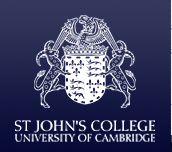| 28 Sep 2015 - 30 Sep 2015 | All day | CRASSH, Alison Richard Building, 7 West Road, CB3 9DT - SG1&2 | |
- Description
- Programme
Description
This is a closed event. If you are interested in attending, please contact one of the conveners.
Conveners
Simon Szreter (Faculty of History)
Rebecca Flemming (Faculty of Classics)
Lauren Kassell (Department of History and Philosophy of Science)
Summary
This conference, conducted under the aegis of the current 5-year Wellcome Strategic Award to the History and Philosophy of Science Department, ‘Generation to Reproduction’, has been designed to capitalise on an interdisciplinary approach. It aims to further our understanding of the role of the venereal diseases in influencing the fertility of populations in the past. It will do so by bringing together medical, social and cultural historians with scholars from other disciplines with a knowledge of the biology, epidemiology and demography of the venereal diseases and their likely impact on fertility in the pre-HIV-AIDs era.
Demographic history has been a major knowledge growth area, internationally, during the last five decades or so and Cambridge’s History Faculty and Geography Department have both played and continue to play a leading role in this inter-disciplinary field. Understandings of the inter-related processes of fertility and mortality lie at the centre of the study of demographic change. While much has been explored and learned, there remains a paucity of specifically demographic study of the relationship between diseases and fertility, in relation to accounts of the many large-scale demographic changes that have been documented. The principal diseases that are known to affect fertility – both directly and through their culturally-mediated impact on sexual behaviour- are the sexually-transmitted diseases of gonorrhoea and syphilis, although a range of other such diseases, notably Chlamydia, may also have been significant in the past. The conference is convened to focus primarily on this relationship between sex, disease and fertility, although it will also be interested in other diseases affecting fertility either directly or through their consequences for sexual behaviour.
Scientific, medical practitioner and lay understandings of the ‘venereal’ diseases have each been subject to great variation and change in different societies throughout the past. These changing understandings have influenced, in different ways, both cultural values and social and sexual behaviour, with consequences also for fertility and reproduction. Therefore this conference will also be hearing from scholars with research that can throw light on this aspect of the relationship between disease, sex and fertility.
It is the first conference in a long time- quite probably ever- to address this issue and is likely to produce important new insights and to identify future research proposals, drawing from an interdisciplinary dialogue between biology and history.
Sponsors




Supported by the Centre for Research in the Arts, Humanities and Social Sciences (CRASSH), Pembroke College and St John’s College at the University of Cambridge and the Wellcome Trust.
Accommodation for speakers selected through the call for papers and non-paper giving delegates
We are unable to arrange or book accommodation, however, the following websites may be of help.
Visit Cambridge
Cambridge Rooms
University of Cambridge accommodation webpage
Administrative assistance: events@crassh.cam.ac.uk
Programme
| DAY 1 - Monday 28 September | |
| 10.00-10.30 | Registration & Coffee |
| 10.30-11.00 | Welcome and Introduction |
| 11.00-12.45 | THEME 1: PRESENCE AND PREVALENCE: UNDERSTANDINGS OF SEX AND DISEASE 1A. Syphilis, Treponemas and Gonorrhoea
Chair: Gabriella Zuccolin (Cambridge) |
| 12.45-13.45 | Lunch |
| 13.45-15.45 | 1B. Chlamydia
Chair: Anne Hardy (London School of Hygiene) |
| 15.45-16.15 | Tea break |
| 16.15-18.00 | 1C ‘Venereal disease’
Chair: Michell Wallis (Cambridge) |
| 18.15-19.30 | Drinks Reception at the Faculty of Classics |
| 19.30 | Dinner in a local restaurant |
| DAY 2 - Tuesday 29 September | |
| 9.00-10.45 | THEME 2: FOCUSING ON FERTILITY AND INFERTILITY 2A. Models and Behaviour
Chair: Richard Smith (Cambridge) |
| 10.45-11.15 | Coffee break |
| 11.15-12.30 | 2B. Venereal Diseases and Infertility in 18th Century Britain
Chair: Nick Hopwood (Cambridge) |
| 12.30-13.30 | Lunch |
| 13.30-15.15 | 2C. Anthropology, Infertility and Disease
Chair: Rich McKay (Cambridge) |
| 15.15-15.45 | Tea break |
| 15.45-17.30 | 3A.* Perceptions of danger and sexual behaviour
Chair: Victoria Harvey (Cambridge) |
| 19.00 | An Address to the conference by the Guest of Honour: Dr Roy Scragg OBE (Director of Public Health, Papua New Guinea 1957–70) Lightfoot Room, Old Divinity School, Corfield Court, St John’s College. |
| 19.30 | Conference dinner: St John’s College, Wilberforce room |
| DAY 3 - Wednesday 30 September | |
| 9.00-10.45 | THEME 3: SIN AND SEX, MORALITY AND INFERTILITY 2D.* Archaeology, astrology, fertility and disease
Chair: Rebecca Flemming (Cambridge) |
| 10.45-11.15 | Coffee break |
| 11.15-13.00 | 3B. Public discourse of venereal diseases and other causes of infertility
Chair: Lutz Sauerteig (Durham) |
| 13.00-14.00 | Lunch |
| 14.00-15.30 | FINAL PLENARY DISCUSSION: What have we learnt and where do we go from here? |
* Sessions 3A and 2D transposed for timetabling convenience |



